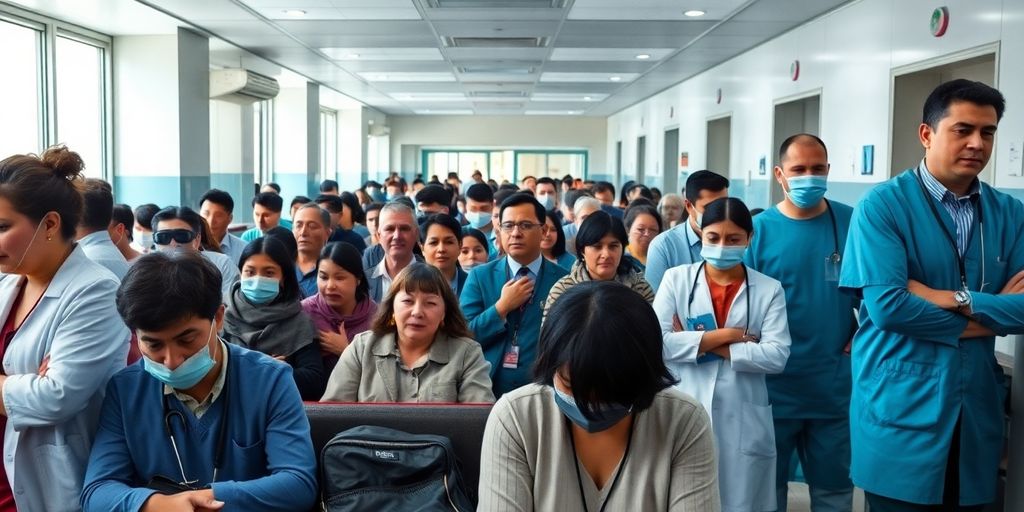The healthcare system in Portugal is facing a significant crisis, particularly in emergency care services. Recent reports indicate a sharp increase in patient complaints regarding long wait times and inadequate treatment, raising alarms about the sustainability of the national health service.
Overview of the Crisis
The crisis in Portugal’s emergency healthcare services has escalated in recent months, with a notable rise in patient dissatisfaction. According to data from the Portal da Queixa, more than 300 complaints have been logged in just six months, highlighting the urgent need for reform in the healthcare system.
Patient Complaints and Wait Times
The primary concern among patients is the excessive wait times in emergency departments, which account for 44.8% of all complaints. Patients report average waiting periods of around six hours before receiving care, leading to widespread frustration and discontent.
The breakdown of complaints reveals:
- Long Wait Times: 44.8%
- Poor Treatment: 27.9%
- Difficulties in Contacting Support: 5.4%
- Lack of Information: 5.1%
- Shortage of Medical Staff: 1.4%
Hospitals Under Scrutiny
Several hospitals have been identified as the most problematic in terms of patient complaints:
- Hospital Beatriz Ângelo (Loures) – 7.8% of complaints
- Hospital Pedro Hispano (Matosinhos) – 5.8%
- Hospital de Santa Maria (Lisbon) – 5.8%
Other facilities, including Santo André, Braga, and the Coimbra University Hospital Center, have also been mentioned frequently in complaints.
Government Response
The situation has prompted a response from government officials, with Health Minister Ana Paula Martins scheduled to provide explanations in Parliament regarding the ongoing crisis. There is growing pressure on the government to devise effective and sustainable solutions to address the systemic issues plaguing the healthcare system.
Structural Issues in Healthcare
Experts attribute the crisis to several underlying structural problems within the Portuguese healthcare system. Key issues include:
- Shortage of Medical Professionals: A lack of doctors exacerbates the situation.
- Overburdened Services: Emergency departments are overwhelmed with patients.
- Resource Management Challenges: Inefficient allocation of resources contributes to the crisis.
The Need for Reform
The recent surge in complaints, particularly an 11% increase in the first week of 2025 compared to the previous year, underscores the urgent need for reform. Experts advocate for:
- Improved Hospital Management: Streamlining operations to enhance efficiency.
- Increased Healthcare Workforce: Hiring more medical professionals to meet demand.
- Investment in Primary Care: Strengthening primary healthcare services to alleviate pressure on emergency departments.
Conclusion
The ongoing crisis in Portugal’s emergency healthcare services is a pressing issue that requires immediate attention. As patient complaints continue to rise, the government faces mounting pressure to implement reforms that will ensure timely and effective care for all citizens. Without significant changes, the sustainability of the national health service remains in jeopardy.













